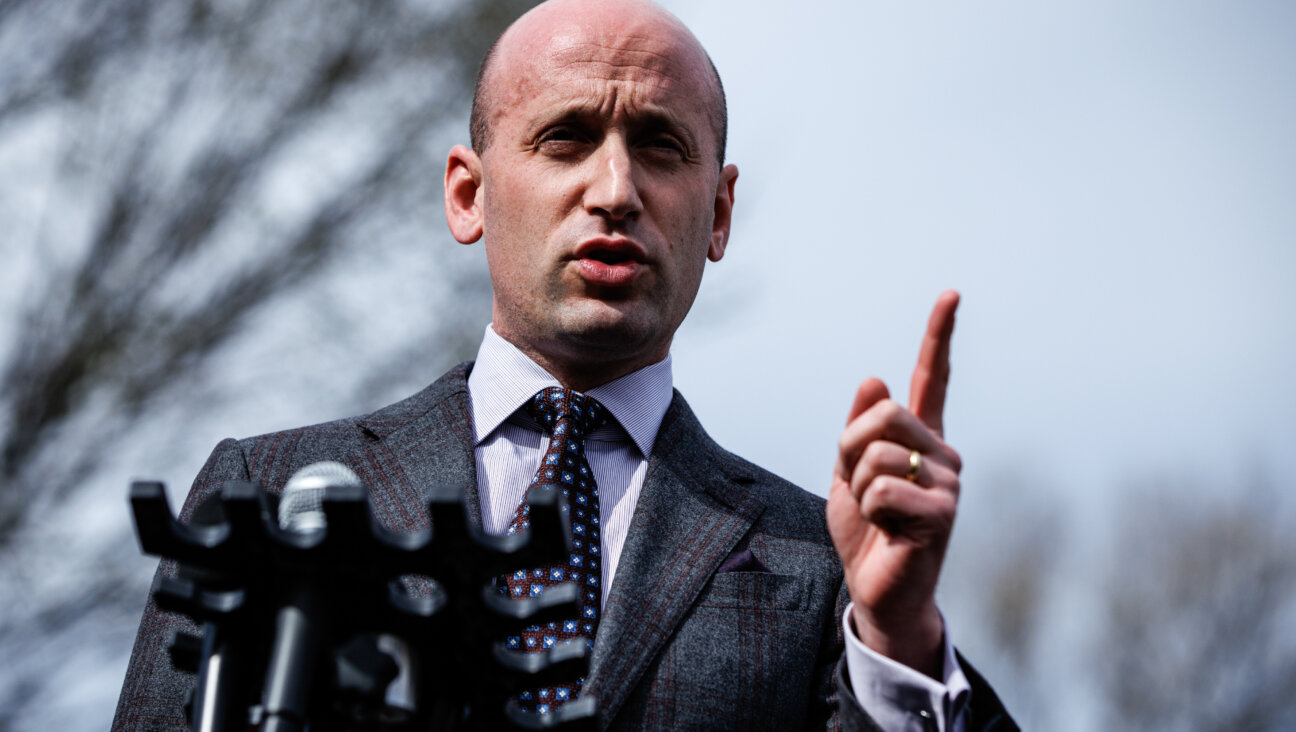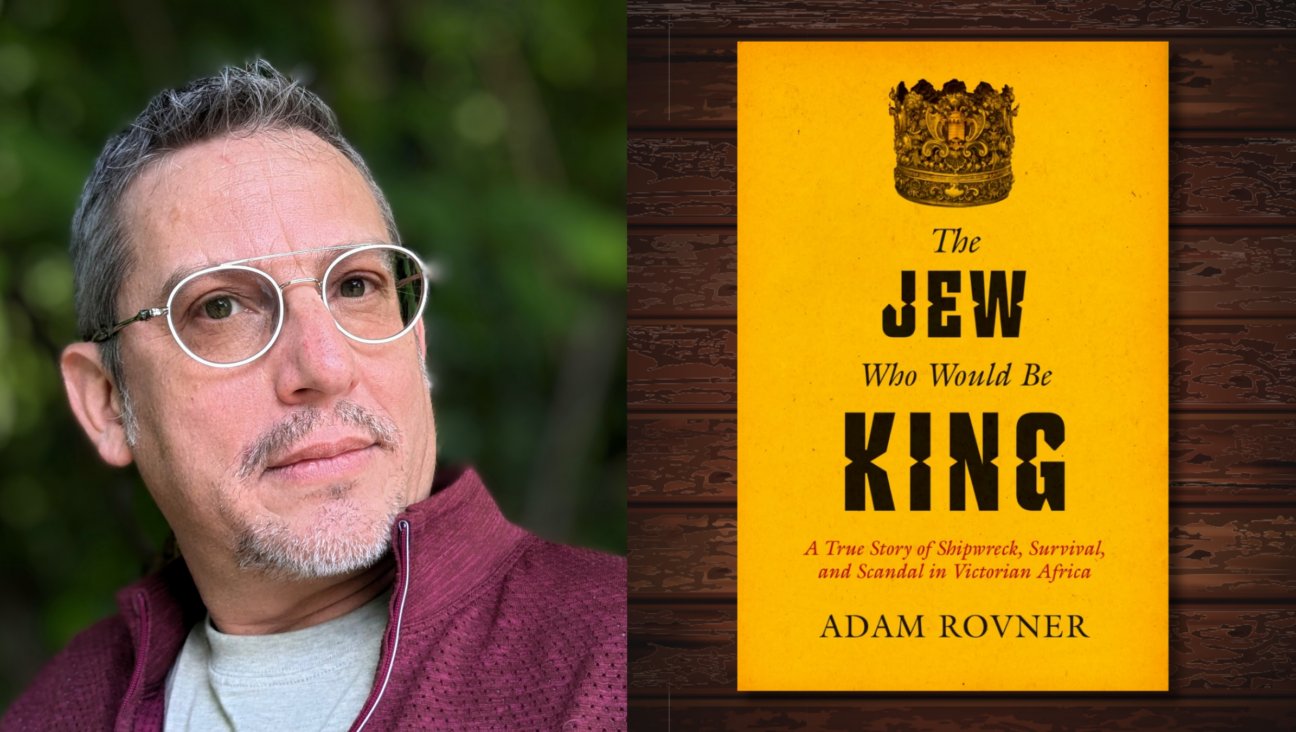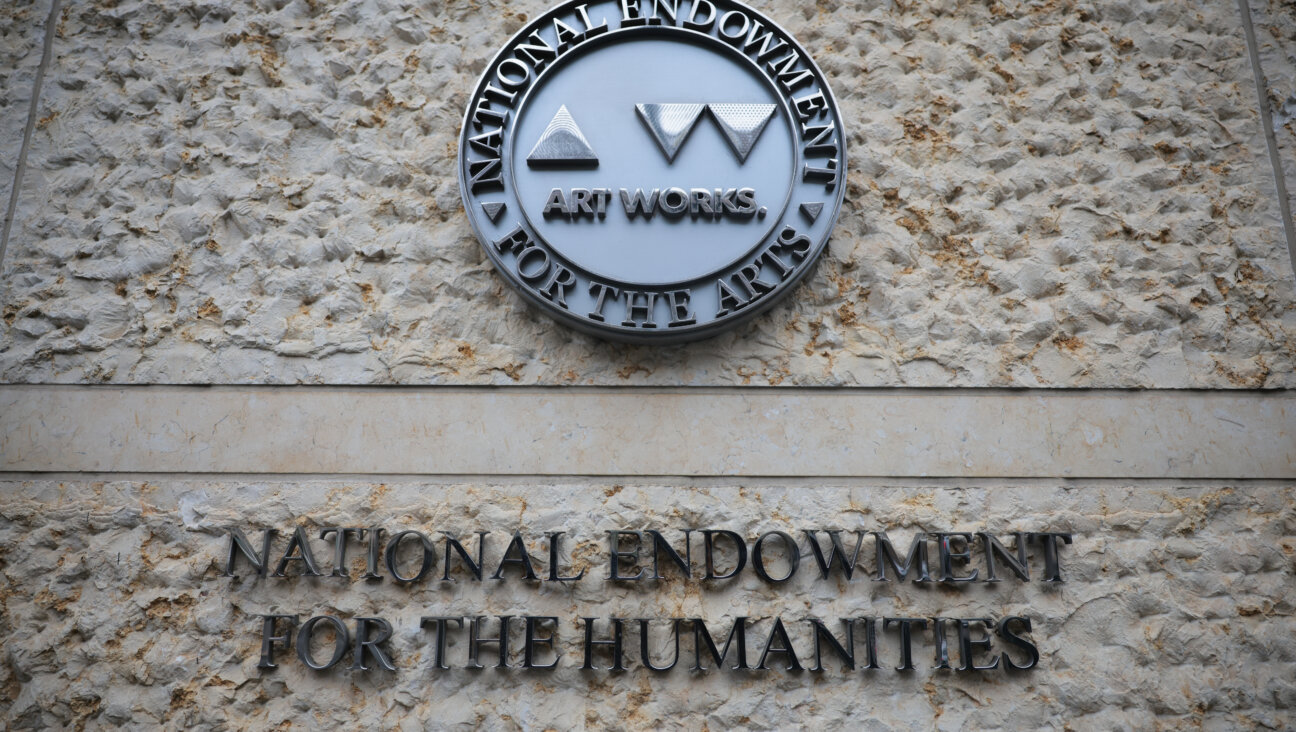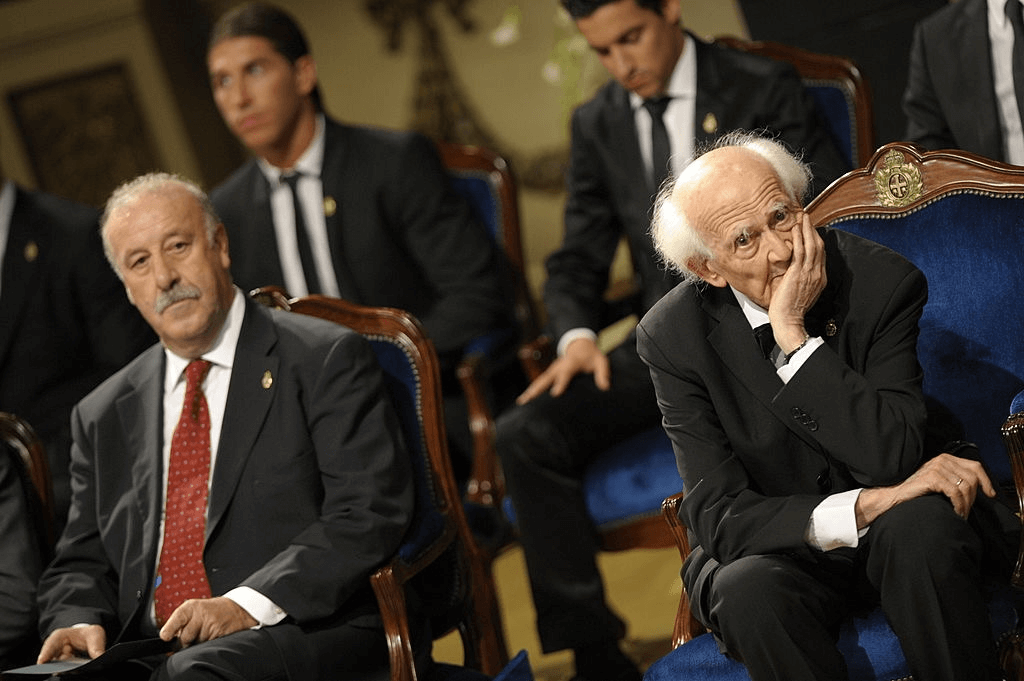Max Blumenthal, Scourge of Conservative Conferences
Max Blumenthal is a party pooper.
Or, at least, you might feel that way if you were the organizer of a conservative conference and Blumenthal showed up with a video camera.
The New York-based journalist is a Puffin Foundation writing fellow at the Nation Institute (which is affiliated with the venerable left-wing magazine of the same name) and a regular contributor to the Huffington Post. At 29, Blumenthal has covered the various strands of the conservative movement for an array of left-leaning publications.
But he has really made a name for himself with his videos.
Armed with a cameraman and a dry wit, Blumenthal has become an Internet favorite, offering up red meat to those looking to have their stereotypes of conservatives confirmed with video evidence.
Deadpanning his way through this year’s Conservative Political Action Conference, Blumenthal cornered pundit Michelle Malkin, author of a recent book defending the World War II internment of Japanese-Americans, and asked her to autograph a photo of Manzanar, the famed internment camp. (She declined.) Later, before a packed auditorium, he asked right-wing fire-breather Ann Coulter: “As a proponent of the sanctity of marriage, can you explain why you’ve had three broken engagements and never been married?” The seven-minute video has been viewed more than 160,000 times on YouTube alone.
For his follow-up, “Generation Chickenhawk,” Blumenthal attended a conference for College Republicans. There, he surveyed the enthusiastic young supporters of the Iraq War, searching in vain for attendees who were eager to enlist.
Blumenthal has also focused his lens leftward. He teamed up with organizers of the Take Back America conference to make a video about their event. Blumenthal ran around asking participants, such as the Rev. Al Sharpton, if they knew where he could find “Obama Girl,” the sexy YouTube phenomenon who had delivered a sultry serenade to the dashing Illinois senator. Blumenthal interviewed 9/11 conspiracy theorists and demanded of Ralph Nader, “If Al Gore was president now, you think everything would be the same?” (“Given his record as vice president, yes, it wouldn’t be that much different, except for the war,” Nader replied.)
Organizers, it seems, weren’t impressed. Blumenthal says they refused to show the finished product at the conference. “It was a fiasco,” Blumenthal said.
Journalism and politics run in Blumenthal’s blood. His father is veteran liberal journalist and former White House aide Sidney Blumenthal, who was a frontline combatant in the Clinton wars of the 1990s. The younger Blumenthal has inherited his father’s combative relationship with the conservative movement.
His latest video, “Rapture Ready,” is focused on a recent Christians United for Israel conference in Washington. After interviewing Tom DeLay about Jesus’ Second Coming (“It’s what I live for, and I hope it comes tomorrow. And obviously we have to be connected to Israel in order to enjoy the Second Coming of Christ,” DeLay said); taking in some inspired Jewish-style dancing; and asking the group’s founder, Pastor John Hagee, some pointed questions about passages from his book, “Jerusalem Countdown,” Blumenthal eventually was booted by security.
Blumenthal spoke with the Forward about making videos, Christian Zionism, his Jewish identity and growing up in the thick of things politically.
How did you wind up starting to make these political videos? What was the impetus behind it?
I’ve been covering the conservative movement, the religious right, the anti-immigration movement for well over four years, and I wanted to show people what it was like doing the work that I do, because so many people had sort of expressed fascination with the idea of just hanging out with people they consider to be intolerable, I guess. These are sort of progressive fans and friends. And so I just wanted to show them what it was like and how interesting and intellectually stimulating it can be, and also how funny it can be to hang around these kinds of conferences.
You said you find covering this beat to be intellectually stimulating, but in the videos people come across, oftentimes, as laughable or ridiculous. Do you find hanging out with the conservatives to be something you enjoy, or do you find it intolerable? Do you find that they make points that make you think?
I suppose when I initially delved into covering the right, it was because I found it so fascinating. I realized that there were so many unacknowledged components of this movement that I could explain to people and try to investigate for myself. It propelled me to go further into the movement. And on my videos I think that there are some subjects who are unintentionally self-satirical and hilarious, and stupid also, brain-dead even. But there are also people who are part of something that fascinates me. For instance, the people on the Christians United for Israel video explaining their eschatology — that’s really interesting, a whole movement that supports Israel because of end-times theology. Also, I find the spectacles that the right produces to be really fascinating. As far as how I feel about it personally, covering this movement and being among people who I deeply disagree with, I guess it doesn’t have that much of a lasting effect on me. I have a pretty short emotional memory.
Have you gotten more response from your videos than you have from your articles on the same topic?
I wrote in 2005 a piece on the College Republican National Convention, and I asked participants the same question. While the reaction was immense, it wasn’t the same. I think for so many people, reading is just such a rigorous mental exercise; they just can’t handle it. They respond much more to my videos. That’s partly why I produced it, to break out of the liberal intellectual bubble that I’ve been working in and that audience that I’ve been writing for. And I think I’ve really broken through. Also, young people have responded more to my videos because they’re like the YouTube generation. And I think it’s difficult to capture the aesthetic of these rallies and conservative conferences in print, and my videos, I think, have captured it perfectly, especially in the case of Christians United for Israel. I’m not comparing this organization or its agenda to fascism, but I think if you read Susan Sontag’s essay on the “fascist aesthetic,” there clearly is a fascist aesthetic to their Night to Honor Israel, which I portrayed in this video.
So I take it from this video that you don’t think that American Jews should ally themselves with these Christian Zionists?
Whatever you think about Israel, whether you’re a Zionist or not, whether you’re a Likudnik or you support Labor or even a more left-wing party, you have to recognize that Israel’s survival depends on a permanent settlement with the Palestinians. And this organization opposes and lobbies against any sort of negotiation with the Palestinians or Israel’s Arab neighbors, and that’s extraordinarily dangerous to Israel’s short-term security and long-term survival. If you look deeper in a moral sense, it’s absolutely immoral for Jews to align themselves with this organization — and cynical, because of their theology, which is openly antisemitic and culminates in a battle between what one participant in the conference described as a war between the Christians and the anti-Christians — the anti-Christians encompass Jews, Muslims, Hindus, atheists, anyone who isn’t a born-again Christian, including mainline Christians and Palestinian Christians who’ve lived in Nazareth and Bethlehem since the days of the Apostles. So absolutely, I think it’s cynical and dangerous for Jews to align themselves with this organization and with Christian Zionists. And those who have reflect a level of desperation that I think is really troubling.
In part, this is because American Jews feel spurned by some groups that they had seen — particularly liberal Jews had seen — as their natural allies. For instance, the more liberal mainline churches are seen as unfairly placing the onus on Israel for its conflict with the Palestinians. The Presbyterians had moved forward on a divestment measure, an effort that we’ve seen echoes of in other mainline denominations. And many Jews view the intellectual left or the activist left — including The Nation magazine — as hostile to Israel. So people say, “Well, Jews and Israel should take their friends where they can get them, irrespective of what these friends think is going to happen in the afterlife.” How would you respond to people who say that, who feel because they perceive those on the left as being unfriendly to Israel, they can’t really turn away these people who are coming to them as allies, and as supporters of Israel?
“Being friendly to Israel” is sort of a loaded phrase. It’s a very subjective phrase. And I don’t know how you would define that, “Being friendly to Israel.” But if anyone thinks “being friendly to Israel” means encouraging Israel to take more land, encouraging Israel to expand its illegal settlements in the West Bank, encouraging Israel to ramp up hostilities with its neighbors, then I think those people need to look in the mirror and assess the consequences of their priorities, because these sort of initiatives have very dangerous consequences for Israel’s long-term survival. If they want to be in a permanent state of war, I think Christians United for Israel, those are great allies for Israel, and Christian Zionists in general.
What’s your Jewish background like? Are you involved at all in communal activities or communal activism?
I’m not in the army of God, I’m more in the secret service, which means I go to shul on the High Holy Days, or when I feel like it. Sometimes on a Friday I’ll go. I haven’t gone in quite awhile, because I just haven’t been connected to any element of the Jewish community, because I’ve been so transient as a reporter living in so many different cities. But recently I took Hebrew lessons with a Lubavitcher rabbi. I’ve traveled to Israel. I went to Hebrew school, so I have sort of a traditional Reform Jewish background. My faith right now is pretty much dormant — not in the army of God.
Was this Christians United for Israel video a way of weighing in on an issue that you feel is of import to you specifically as a Jew?
It’s a very personal issue. The Christian right and Israel are both issues that are really personal to me. Number one, because I think the Christian right wants to relegate American Jews to second-class status by removing the Establishment Clause, eroding the First Amendment and smashing the wall of separation. They’ve openly intimidated and attacked Jews who’ve tried to combat their efforts. For instance, Mikey Weinstein, who heads the Military Religious Freedom Foundation, told me he gets dozens of death threats every week for what he’s trying to do — to protect, for instance, his son, a Jewish cadet in the Air Force Academy, from Evangelical proselytization. And the fact that they’ve allied themselves with Israel is just extremely dangerous, because I care about what happens with Israel, and I care deeply about the Palestinians. And I think our history as Jews now, because of Zionism, is inextricably linked with that of the Palestinians. I really want to see a settlement. So this organization and this movement of Christian Zionism personally troubles me a lot, and I think it should trouble not only Jews, but anyone who wants to see some sort of a peaceful resolution to what’s happening across the Middle East.
Are the videos going to be your new focus? Are you still going to be doing journalism? Or, given the great response the videos have received, do you think you’re going to be moving more in that direction in the future?
I’m actually going to be writing a book that’s either going to appear during or after the election about the culture and political psychology of the right, and that’s where I’m going to be putting my energy this year. And if there’s any room to do videos, I’m going to continue to do them. But I have nothing planned, and I think because people recognize me so much, I might have to wear, like, a John Edwards wig and a Geraldo mustache to get into the next conference.
You grew up in the thick of things politically. How has that affected your outlook?
I grew up in Washington and saw things from the inside. It’s had a profound effect on me. Number one, I don’t have any reverence for powerful people or influential people. I just see them as my equal. I can even see through the veneer they put up. At the same time, there was a period in my life when I wanted to divorce myself from politics and from Washington. But when Bush was elected, a lot of the things that my father had written and that he had told me about the conservative movement started to ring true, and I started to understand why he had pursued this career and also who the forces were that tried to destroy him. During the Clinton scandals, I just saw it as a dirty business that I wanted no part of. I just wanted to stay away from the personal destruction of it. But when these forces that tried to destroy Clinton came into power, it was really illuminating for me. That’s partly what propelled me into journalism. But not all of what propelled me into it. I just love reporting. I love the craft and the process of it. So that’s the main reason why I do this.
For more online-exclusive Q&A’s click here.
The Forward is free to read, but it isn’t free to produce

I hope you appreciated this article. Before you go, I’d like to ask you to please support the Forward.
Now more than ever, American Jews need independent news they can trust, with reporting driven by truth, not ideology. We serve you, not any ideological agenda.
At a time when other newsrooms are closing or cutting back, the Forward has removed its paywall and invested additional resources to report on the ground from Israel and around the U.S. on the impact of the war, rising antisemitism and polarized discourse.
This is a great time to support independent Jewish journalism you rely on. Make a Passover gift today!
— Rachel Fishman Feddersen, Publisher and CEO
Most Popular
- 1

Opinion My Jewish moms group ousted me because I work for J Street. Is this what communal life has come to?
- 2

Opinion Stephen Miller’s cavalier cruelty misses the whole point of Passover
- 3

Opinion Passover teaches us why Jews should stand with Mahmoud Khalil
- 4

Fast Forward How Coke’s Passover recipe sparked an antisemitic conspiracy theory
In Case You Missed It
-

Books How a Jewish boy from Canterbury became a Zulu chieftain
-

Fast Forward Suspected arsonist intended to beat Gov. Josh Shapiro with a hammer, investigators say
-

Culture Jews thought Trump wanted to fight antisemitism. Why did he cut all of their grants?
-

Opinion Trump’s followers see a savior, but Jewish historians know a false messiah when they see one
-
Shop the Forward Store
100% of profits support our journalism
Republish This Story
Please read before republishing
We’re happy to make this story available to republish for free, unless it originated with JTA, Haaretz or another publication (as indicated on the article) and as long as you follow our guidelines.
You must comply with the following:
- Credit the Forward
- Retain our pixel
- Preserve our canonical link in Google search
- Add a noindex tag in Google search
See our full guidelines for more information, and this guide for detail about canonical URLs.
To republish, copy the HTML by clicking on the yellow button to the right; it includes our tracking pixel, all paragraph styles and hyperlinks, the author byline and credit to the Forward. It does not include images; to avoid copyright violations, you must add them manually, following our guidelines. Please email us at [email protected], subject line “republish,” with any questions or to let us know what stories you’re picking up.














